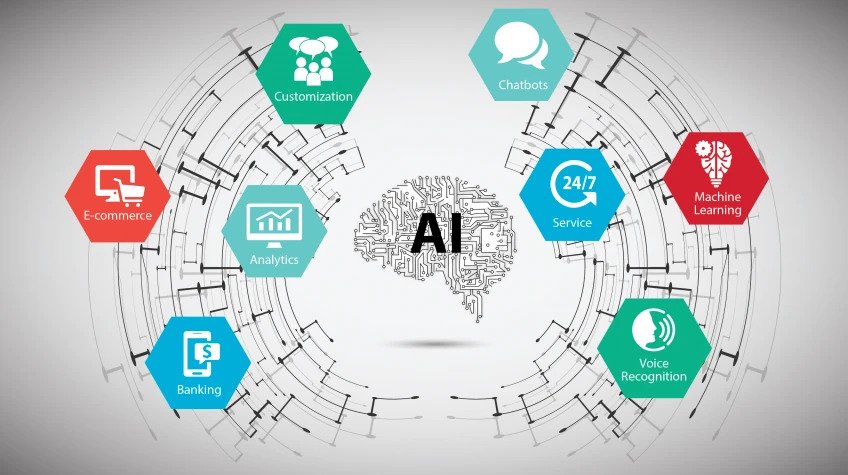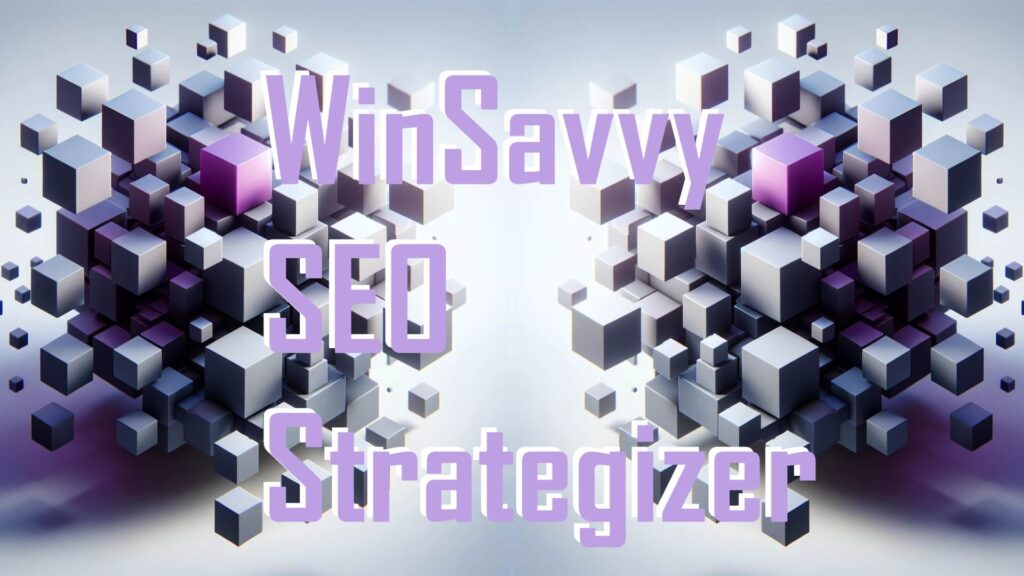Creating engaging content consistently can be a tough job for marketers. The demand for fresh, unique content is high, but sometimes it feels like the well of ideas runs dry. That’s where AI-powered tools come in. They can help you generate new content ideas, write drafts, and optimize your content, making your job a lot easier. Let’s dive into how AI can transform your content creation process.
Understanding AI in Content Creation
What is AI?
Artificial Intelligence, or AI, refers to computer systems that can perform tasks usually requiring human intelligence. These tasks include learning, reasoning, problem-solving, understanding language, and even creativity.
In the world of content creation, AI tools can analyze data, recognize patterns, and generate ideas, making the content creation process faster and more efficient.
Why Use AI for Content Creation?
Using AI for content creation saves time and effort. AI tools can analyze vast amounts of data quickly, providing insights that might take humans days to uncover.
They can suggest trending topics, identify content gaps, and even help with keyword research, ensuring your content is relevant and engaging for your audience.
How AI Transforms Content Creation
Generating Content Ideas
One of the hardest parts of content creation is coming up with new ideas. AI tools can scan the internet to identify trending topics in real-time.
They analyze social media platforms, news websites, and forums to find what people are talking about. By understanding these trends, you can create content that resonates with your audience’s current interests.
For example, if you run a travel blog, you might enter a keyword or topic related to travel into an AI tool. The tool could then show you trends related to specific types of travel, such as solo travel, adventure travel, or luxury travel.
You can use these insights to create content that taps into these trends.
Writing Drafts
AI writing assistants like Jasper, Writesonic, or Copy.ai can help you generate content ideas and even create drafts. These tools use natural language processing (NLP) to understand your input and generate relevant content.
You can provide a brief or a topic, and the AI will produce a draft that you can refine and personalize.
For instance, if you need to write an article on “mental health tips,” you can input this topic into an AI writing assistant. The AI will then generate a draft with various tips and advice on mental health, which you can then edit to match your style and voice.
Optimizing Content
AI-powered keyword research tools can help you find the best keywords to target. These tools analyze search volumes, competition, and related keywords to suggest the most effective keywords for your content.
This ensures your content is optimized for search engines, driving more traffic to your site.
For example, tools like SEMrush or Ahrefs are great for keyword research. Enter your main topic into the tool, and it will provide a list of related keywords, along with their search volume and competition level.
These tools also offer keyword difficulty scores, helping you choose keywords that are easier to rank for.
Personalizing Content
AI can help you personalize your content based on your audience’s preferences and behavior. Tools like HubSpot or Marketo can analyze user data to segment your audience and suggest content that matches their interests.
This ensures that your content is highly relevant and personalized, increasing engagement and loyalty.
For example, if a segment of your audience frequently engages with content about “digital marketing trends,” you can create more content around this topic for that specific segment. This targeted approach ensures that your audience feels understood and valued.
Real-Time Data Analysis for Trendspotting
AI excels in analyzing real-time data to spot emerging trends. For startup founders, staying ahead of trends is crucial for relevance and engagement.
AI tools like BuzzSumo and Google Trends scan the web continuously, identifying which topics are gaining traction. This allows you to create content that taps into current conversations and interests.
For instance, if you notice an increasing discussion around “remote work productivity tools” due to a sudden shift in work-from-home policies, you can quickly produce content that addresses this need. This could include articles, guides, or even webinars, positioning your startup as a timely and relevant resource.
Enhancing Audience Understanding with AI Analytics
Understanding your audience deeply is key to creating content that resonates. AI tools can analyze user behavior, preferences, and feedback across various platforms, providing insights into what your audience truly wants.
Tools like HubSpot and Salesforce use AI to segment your audience based on these insights, allowing for highly targeted content creation.
For example, if your analytics reveal that a segment of your audience frequently engages with content about “eco-friendly products,” you can create more in-depth content around sustainable practices, product reviews, and industry news. This not only meets their interests but also strengthens their connection to your brand.
Streamlining Content Production with AI Automation
AI can significantly speed up the content production process. Writing assistants like Jasper and Copy.ai can generate drafts based on brief inputs, allowing your team to focus on refining and personalizing the content.
This is particularly beneficial for startups where resources are often limited. Imagine you need to produce a series of blog posts on “startup funding strategies.”
You can input this topic into an AI writing assistant, which will generate outlines and initial drafts. Your team can then enhance these drafts with specific examples, case studies, and personal insights, ensuring the content is both high-quality and authentic.
Optimizing Content for SEO with AI
SEO is critical for visibility, and AI can optimize your content to rank higher on search engines. Tools like SurferSEO and Clearscope analyze top-performing content and provide actionable recommendations for improving your own.
These suggestions can include keyword placement, content structure, and readability enhancements.
For startup founders, using AI for SEO means you can compete with larger companies with more resources. If you’re writing about “innovative marketing strategies for startups,” AI tools can help ensure your content includes relevant keywords, follows best practices, and is structured in a way that appeals to both readers and search engines.
Predictive Content Performance Analysis
One of the transformative capabilities of AI is its predictive analytics. AI tools can forecast how well a piece of content will perform before you publish it. By analyzing historical data and current trends, tools like MarketMuse and Atomic Reach can predict the engagement and reach of your content.
For instance, if you’re planning to write about “the impact of AI on small businesses,” AI can analyze similar past content and predict its potential success. If the forecast is positive, you can proceed with confidence. If not, the tool might suggest tweaks or alternative angles to improve its chances.
Leveraging AI for Content Lifecycle Management
Content Ideation and Brainstorming
AI tools can facilitate the brainstorming process by generating a wide array of content ideas from a single input. Tools like AnswerThePublic and BuzzSumo analyze search queries and social media discussions to suggest relevant topics.
This helps you maintain a steady stream of fresh content ideas, ensuring your editorial calendar is always full.
For a startup founder, having a robust pipeline of content ideas is crucial. If you operate in the tech space, inputting a general topic like “blockchain” into an AI tool can yield various subtopics such as “blockchain for supply chain management,” “blockchain security trends,” and “future of blockchain in finance.” These insights can drive your content strategy for months.
Efficient Content Scheduling and Publishing
AI can also streamline the scheduling and publishing of content. Tools like CoSchedule and Trello, integrated with AI capabilities, can analyze your audience’s behavior to recommend optimal times for publishing. This ensures maximum visibility and engagement.
For instance, if data shows that your target audience is most active on social media in the evenings, you can schedule your posts accordingly. This strategic timing can lead to higher engagement rates and better overall performance of your content.
Continuous Content Improvement
AI enables continuous improvement of your content by providing real-time feedback and suggestions. Tools like Grammarly and Hemingway Editor offer more than just basic grammar checks.
They provide insights into readability, tone, and style, helping you refine your content to better meet your audience’s expectations.
For example, if you’re drafting an in-depth guide on “scaling a startup,” AI editing tools can suggest making complex sentences simpler, ensuring the content is accessible to a broader audience. This continuous refinement process helps maintain high content standards and keeps your audience engaged.
Practical Applications of AI in Content Creation

Automating Social Media Content
Social media is a critical component of any content strategy, but managing it can be time-consuming. AI tools like Buffer, Hootsuite, or Sprout Social can analyze your social media performance and suggest content ideas that are likely to engage your audience.
These tools can recommend the best times to post, the types of content that perform well, and even suggest hashtags to use.
For example, if you run a fitness brand, these tools might suggest posting more about “quick home workouts” or “healthy meal prep tips,” based on what your audience engages with the most. This ensures that your social media content is always relevant and engaging.
Automating Blog and Article Writing
For startup founders, time is a precious commodity. Automating parts of the blog and article writing process can free up valuable hours. AI tools like Jasper and Copy.ai can generate comprehensive drafts based on your input.
Start by providing a detailed brief to the AI tool, including the topic, key points to cover, and the desired tone. The AI will then create a draft that serves as a strong foundation for your article.
To maximize the effectiveness of these tools, consider using them to handle repetitive and formulaic sections of your content. For example, introductions, conclusions, and common tips can be quickly drafted by AI, allowing you to focus on adding unique insights and fine-tuning the overall narrative.
This approach not only speeds up the writing process but also ensures consistency in your content.
Crafting Effective Marketing Copy
Creating compelling marketing copy is crucial for attracting and retaining customers. AI can assist in crafting persuasive and targeted marketing messages.
Tools like Persado and Phrasee use AI to generate high-conversion marketing copy by analyzing language patterns that resonate with your audience.
As a startup founder, you can leverage these tools to create various forms of marketing content, such as email subject lines, social media posts, and ad copy. Input your campaign goals and audience characteristics into the AI tool, and it will produce copy that is tailored to drive engagement and conversions.
For instance, if you’re launching a new product, the AI can help you craft a compelling product description and promotional messages that highlight its unique benefits and appeal to your target market.
Enhancing Content Curation
AI-powered content curation tools can streamline the process of finding and sharing relevant content with your audience. Tools like Feedly and Curata use AI to scour the web for articles, blogs, and news that match your interests and keywords.
This ensures that your curated content is always fresh and aligned with your audience’s preferences.
For startup founders, an effective content curation strategy can position your brand as a thought leader in your industry. Use AI tools to gather the latest industry news and insights, and then add your commentary or analysis to provide additional value.
This not only keeps your audience informed but also showcases your expertise and unique perspective on industry trends.
Optimizing Visual Content Creation
Visual content is essential for capturing attention and conveying information quickly. AI tools like Canva and Adobe Spark can assist in creating professional-quality graphics and visuals.
These tools offer AI-driven design suggestions and templates that can be customized to fit your brand’s aesthetic.
To make the most of these tools, startup founders should focus on creating a consistent visual identity across all content. Use the AI’s design suggestions to maintain a cohesive look and feel, ensuring that your brand is instantly recognizable.
Whether you’re creating social media graphics, infographics, or presentation slides, AI can help you produce visually appealing content that enhances your overall message.
Personalizing Content Recommendations
AI can personalize content recommendations based on user behavior and preferences. Tools like OneSpot and Dynamic Yield analyze how users interact with your content and suggest personalized recommendations to keep them engaged. This can significantly enhance user experience and retention.
For example, if your startup offers an online learning platform, AI can track which courses a user has viewed and recommend similar or advanced courses that align with their interests.
This level of personalization not only improves user satisfaction but also increases the likelihood of repeat visits and continued engagement.
Automating Social Media Engagement
Engaging with your audience on social media is vital for building relationships and fostering community. AI tools like Sprinklr and Socialbakers can automate and optimize your social media interactions.
These tools can analyze social media conversations, identify key engagement opportunities, and suggest appropriate responses.
Startup founders can use these tools to ensure timely and relevant interactions with their audience. For instance, if your startup is mentioned in a tweet or a comment, AI can alert you and suggest a response that aligns with your brand’s voice.
This proactive approach to social media engagement helps build a positive brand image and strengthens your relationship with your audience.
Improving Content Accessibility
Making your content accessible to all users, including those with disabilities, is not only ethical but also broadens your audience reach.
AI tools like Otter.ai and Rev can help transcribe audio and video content, providing text alternatives that are accessible to hearing-impaired users. Additionally, tools like User Way offer AI-driven solutions to ensure your website meets accessibility standards.
For startup founders, prioritizing accessibility can enhance your brand’s reputation and inclusivity. Use AI to provide captions for videos, transcriptions for podcasts, and ensure your website is navigable for users with various disabilities.
This approach not only complies with legal requirements but also demonstrates a commitment to inclusivity and customer care.
Enhancing Creativity with AI
AI can also boost your creativity by providing unique perspectives and ideas that you might not have considered. Tools like Articoolo or Kafkai can generate article ideas and outlines based on a given topic.
These tools analyze a wide range of sources to come up with fresh and unique angles for your content.
Imagine you need to write about “sustainable living.” An AI tool can suggest various angles like “how to start a zero-waste lifestyle,” “the impact of sustainable living on mental health,” or “budget-friendly sustainable living tips.” These suggestions can spark your creativity and help you create unique and engaging content.
Leveraging AI for Different Types of Content
Blog Posts and Articles
AI can be a game-changer for writing blog posts and articles. By using tools like Jasper or Copy.ai, you can quickly generate drafts that you can then refine.
These tools can help you overcome writer’s block by providing a starting point for your content. They can also suggest structure and key points to cover, making the writing process smoother and more efficient.
For instance, if you’re writing a blog post about “the benefits of remote work,” you can input this topic into the AI tool. It might suggest sections like “increased productivity,” “better work-life balance,” and “reduced commuting costs.” You can then build on these suggestions, adding your own insights and examples to create a comprehensive and engaging post.
Email Marketing
Email marketing remains one of the most effective ways to reach your audience. AI can help you craft personalized and engaging email campaigns.
Tools like Mailchimp or HubSpot use AI to analyze user behavior and suggest the best times to send emails, the most effective subject lines, and the type of content that resonates most with your audience.
For example, if your analytics show that your audience engages more with emails about “exclusive offers” or “how-to guides,” AI can help you create more of this content. It can also personalize emails based on user behavior, such as sending product recommendations based on past purchases or browsing history.
Video Content
Video content is increasingly important in digital marketing. AI tools like Lumen5 can help you create engaging video content from your existing blog posts or articles.
Simply input the text, and the AI will suggest relevant visuals, animations, and music to create a compelling video.
For example, if you have a blog post on “10 tips for a healthier lifestyle,” Lumen5 can transform this post into a video with images of healthy foods, people exercising, and tips displayed on screen. This helps you reach a wider audience, as videos are often more engaging and shareable than text alone.
Integrating AI into Your Content Strategy
Planning Your Content Calendar
AI can help you plan your content calendar by predicting trends and suggesting the best times to publish. Tools like CoSchedule or Trello, integrated with AI features, can analyze your past content performance and predict which topics and publishing times will yield the best results.
For instance, if your past blog posts on “summer fitness tips” performed well in June, the AI can suggest planning similar content for the upcoming June. This ensures that your content strategy is data-driven and aligned with your audience’s interests.
Measuring Content Performance
AI can also help you measure the performance of your content and adjust your strategy accordingly. Tools like Google Analytics, with AI-powered features, can provide insights into how your content is performing.
They can track metrics like page views, bounce rates, and conversion rates, and suggest improvements.
For example, if your blog post on “vegan recipes” has a high bounce rate, the AI might suggest improving the introduction or adding more engaging visuals. By continuously monitoring and optimizing your content, you can ensure that it remains effective and engaging.
AI Tools for Specific Content Creation Needs
AI for SEO Optimization
Search Engine Optimization (SEO) is crucial for getting your content noticed. AI tools like SurferSEO, Clearscope, and MarketMuse can help optimize your content to rank higher in search engine results.
These tools analyze top-performing content for your target keywords and provide suggestions on how to improve your own content.
For example, SurferSEO can provide insights into the ideal word count, keyword density, and use of headings and subheadings. It might suggest adding related keywords or improving the readability of your text. By following these recommendations, you can enhance your content’s visibility and drive more organic traffic to your site.
AI for Content Distribution
Once your content is created, distributing it effectively is key to reaching a larger audience. AI tools like HubSpot and Buffer can help automate and optimize your content distribution strategy.
These tools can schedule posts, track performance, and suggest the best times and platforms for publishing your content.
For instance, if your analytics indicate that your audience is most active on LinkedIn during weekday mornings, these tools can schedule your posts accordingly. They can also track the performance of each post, providing insights into what types of content perform best on different platforms.
This ensures that your content reaches the right people at the right time.
Advanced AI Techniques in Content Creation

Using Natural Language Processing (NLP)
Natural Language Processing (NLP) is a branch of AI that focuses on the interaction between computers and humans through language. In content creation, NLP can analyze large volumes of text to identify trends, sentiments, and key topics.
Tools like MonkeyLearn or Lexalytics can help you understand what your audience is talking about and what content they are interested in.
For example, if you run a health blog, NLP tools can analyze social media comments, reviews, and forums to identify trending health topics like “intermittent fasting” or “mental health during pandemic.” You can then create content around these trending topics to engage your audience.
Leveraging Machine Learning for Predictive Insights
Machine learning, another branch of AI, involves training algorithms on data to make predictions or decisions without being explicitly programmed. Machine learning models can analyze past content performance to predict future trends and suggest content ideas.
For instance, if your blog posts on “digital detox” tend to perform well during the holiday season, a machine learning model can predict similar trends for the upcoming holidays and suggest creating more content around digital detox.
This proactive approach ensures that your content remains timely and relevant.
Enhancing Content Quality with AI
AI for Content Editing
After generating content, AI-driven editing tools can help refine and enhance the quality of your drafts. Tools like Grammarly or Hemingway Editor can analyze your writing for grammar, style, readability, and tone, ensuring that your content is polished and professional.
For startup founders and marketers, this step is crucial in maintaining a consistent brand voice and delivering high-quality content. If you’re drafting an investor update or a thought leadership piece, these tools can ensure that your message is clear, concise, and impactful, increasing the likelihood of engagement and positive responses.
AI for Plagiarism Checking
Ensuring originality is critical in content creation. AI-powered plagiarism checkers like Copyscape and Turnitin can help you verify the uniqueness of your content.
These tools scan the internet and academic databases to identify any duplicate content, ensuring that your work is original and not inadvertently copied from other sources.
For example, before publishing a detailed report on “emerging marketing trends,” running it through a plagiarism checker can ensure that all content is original and properly cited, maintaining your credibility and avoiding any legal issues.
AI-Driven Content Personalization
Personalizing Web Content
AI can help you personalize the content on your website based on user behavior and preferences. Tools like Dynamic Yield or Optimizely use AI to analyze user data and create personalized experiences for each visitor.
This might include personalized product recommendations, tailored content suggestions, or dynamic landing pages.
For instance, if a user frequently visits your site to read about “email marketing strategies,” the AI can personalize their experience by highlighting more content on this topic. This personalized approach can significantly enhance user engagement and increase the likelihood of conversion.
Personalizing Email Campaigns
Email marketing remains one of the most effective ways to reach your audience. AI can help you craft personalized and engaging email campaigns.
Tools like Mailchimp or HubSpot use AI to analyze user behavior and suggest the best times to send emails, the most effective subject lines, and the type of content that resonates most with your audience.
For example, if your analytics show that your audience engages more with emails about “exclusive offers” or “how-to guides,” AI can help you create more of this content. It can also personalize emails based on user behavior, such as sending product recommendations based on past purchases or browsing history.
Success Stories of AI-Powered Content Creation
A SaaS Startup
A SaaS startup used AI tools to enhance their content marketing strategy. By leveraging AI for keyword research and SEO optimization, they were able to identify high-performing keywords and create content that ranked higher in search engine results.
They also used AI-powered writing assistants to generate blog post drafts, saving time and effort. As a result, their organic traffic increased by 60% within six months, and their blog became a key driver of lead generation.
An E-commerce Brand
An e-commerce brand used AI to personalize their email marketing campaigns. By analyzing user behavior and purchase history, AI tools helped them create targeted email campaigns that included personalized product recommendations and special offers.
This personalized approach led to a 40% increase in email open rates and a 25% increase in sales from email marketing.
Future Trends in AI for Content Creation

Enhanced Personalization and User Experience
As AI technology continues to evolve, the ability to deliver even more personalized content will become increasingly sophisticated. Future AI tools will be able to analyze individual user data to create highly customized content experiences.
This will allow marketers to deliver content that is tailored to the specific interests and preferences of each user, significantly enhancing user engagement and loyalty.
For instance, AI could analyze a user’s browsing history, social media interactions, and past purchases to suggest highly relevant content. If a user frequently reads articles about digital marketing trends, the AI could recommend similar articles, webinars, or eBooks on your website.
This level of personalization will help marketers create a more engaging and satisfying user experience.
Improved Content Quality with AI
Future AI tools will be better at understanding context and nuance, leading to higher quality content generation. These tools will be able to create more coherent and sophisticated drafts that require less human editing.
This will streamline the content creation process, making it more efficient while maintaining high standards of quality.
For example, an AI tool could generate a well-structured and engaging article draft on a complex topic like “the future of AI in healthcare.” The tool could incorporate relevant research, expert quotes, and detailed analysis, allowing the human writer to focus on refining the content and adding unique insights.
AI and Multimedia Content
AI is also making strides in multimedia content creation. Tools for generating video scripts, designing graphics, and even creating animations are becoming more advanced.
This will enable content creators to produce rich multimedia content with ease, enhancing the overall user experience.
For instance, an AI tool could analyze a blog post about “social media marketing strategies” and create an engaging video script with key points, visuals, and animations.
This video could then be used to reach a broader audience on platforms like YouTube or social media, driving more traffic and engagement.
Best Practices for Using AI in Content Creation
Balancing AI and Human Creativity
While AI can provide valuable insights and automate many aspects of content creation, it’s essential to balance AI with human creativity. AI can suggest topics and generate drafts, but human input is crucial for adding personality, voice, and unique perspectives to your content.
For example, an AI tool might generate a draft for an article on “mindfulness techniques.” As a writer, you can refine this draft by adding personal anecdotes, expert quotes, and your unique insights to make the content more engaging and relatable.
Ensuring Quality and Accuracy
AI tools can sometimes generate content that is generic or lacks depth. It’s essential to review and refine the AI-generated content to ensure quality and accuracy.
Fact-checking and adding detailed information can help enhance the value of the content.
For instance, if an AI tool generates a list of “top travel destinations,” you should verify the information, add specific details about each destination, and include tips or personal experiences to make the content more informative and engaging.
Staying Ethical with AI
Using AI responsibly and ethically is crucial. Avoid over-relying on AI-generated content and ensure that your content is original and not plagiarized. Transparency with your audience about the use of AI in your content creation process can also build trust.
For example, if you use AI tools to generate ideas or drafts, you can mention this in your content creation process. This transparency shows your audience that you value authenticity and integrity in your content.
Wrapping it up
AI-powered content creation offers marketers, especially startup founders, a powerful toolkit to transform their content strategy. By integrating AI for data-driven insights, efficient production, personalized experiences, and continuous improvement, you can create high-quality, engaging content that resonates with your audience.
Embrace AI to streamline your processes, enhance creativity, and drive growth, ensuring your startup stays ahead in the competitive digital landscape.
READ NEXT:
- Flyer Marketing in 2024: Key Statistics and Effectiveness
- The Intersection of Sports and Social Media: Key Statistics
- Website Marketing Statistics: Key Data Points for 2024
- How Much Time Do We Spend on Social Media? Key Statistics
- Budgeting for Small Business Marketing: Essential Statistics






















Comments are closed.